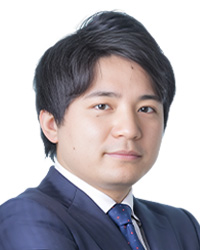|
JAPAN |
Japan is not frequently selected as a place of arbitration, mainly because it is assumed that Japanese is the language used in arbitration procedure, which is disadvantageous to non-Japanese attorneys and parties. It’s also widely believed that few arbitrators are proficient in English, and only Japanese lawyers are allowed to represent clients.
However, these misconceptions have been addressed through the overall globalisation that has taken place across Japan.
Regarding the language used, 41% of international arbitration cases used English before the Japan Commercial Arbitration Association (JCAA), the leading international arbitral institution, between 2018 and 2022, indicating that English is one of the major languages used.
A growing number of Japanese arbitrators can also work in English, with 38% of arbitrators appointed to international JCAA cases of non-Japanese nationality from 2018 to 2022, and from 12 countries. Following amendments to the law, non-Japanese lawyers are also recognised as representatives at international arbitration cases.
Clearly, demerits assumed to impact Japan as a place of arbitration have now been removed.
ARBITRATION ACT AMENDMENT

Partner
Miura & Partners
Tokyo and San Franciso
Tel: +81 3 6270 3509
The Arbitration Act in Japan (AAJ) was enacted in 2003 in accordance with the stipulations of the Model Law on International Commercial Arbitration of the United Nations Commission on International Trade Law (UNCITRAL).
However, the AAJ was not amended to reflect Model Law amendments in 2006. That finally happened this year, in April, with the AAJ amended to align with the latest version of the Model Law.
Specifically, the 2023 amendment has established types and requirements for the enforcement of interim measures, which are orders issued by arbitration tribunals to preserve rights and evidence.
This enforcement can be broadly classified into measures necessary to avoid risk of significant damage or distress to disputed property or rights and/or measures to restore them, and measures
prohibiting disposal of property, obstruction of proceedings, destruction of evidence and other acts.
The party obtaining enforcement of interim measures may then petition the court for an order permitting execution of it, and the petition will be approved unless the court finds grounds for refusal.
Also, prior to the 2023 amendment, when a claimant filed a petition with the court for an execution order, if the arbitral award was written in any language other than Japanese, it was required to submit to the courts a written translation into Japanese of the arbitral award. As arbitral awards tend to be quite long, this translation requirement imposed an administrative burden on the parties involved.
But with the 2023 amendment, in certain cases it will be possible to petition for an execution order of the arbitral award without submitting a Japanese translation.
Additionally, if the place of arbitration is Japan, concurrent jurisdiction will be recognised for Tokyo District Court and Osaka District Court, both of which have judges with specialised knowledge of arbitration cases.
The 2023 amendment is to come into effect no later than one year from the date of promulgation, which was 28 April 2023. At the very latest, operations from May 2024 will be conducted on the basis of the AAJ amendment.
JAPAN ARBITRATION BENEFITS

Associate
Miura & Partners
Tokyo
Tel: +81 3 6270 3562
In addition to the 2023 amendment, there are other unique benefits to selecting Japan as a place of arbitration. First of all, Japan is a nation based on Civil Law. It is therefore easy to appoint a Civil Law arbitrator in Japan.
Considering that since 2010 there have been no cases in which a JCAA arbitration decision was rejected by a non-Japanese court – and there has never been a case of an arbitration tribunal decision reversed by the Supreme Court – it is clear that not only the Japanese courts, but also the non-Japanese courts, respect the decisions of arbitration tribunals and such decisions are stable.
From a geographic perspective of being located at a mid-point between each of the US, Europe and Asia, Japan provides good access for arbitrators, attorneys, parties and witnesses. It’s therefore a convenient location for selection as a third-party jurisdiction. Tokyo and Osaka, which are the likely places for arbitration to be held in Japan, also have the best public safety environments in the world.
In addition, the number of lawyers in Japan is quite low on a per capita basis. This underlines the high level of difficulty of the training and bar examination systems. This difficulty of becoming an attorney is because there is no difference between barristers and solicitors, and all attorneys are trained to be barristers. As such, the quality of lawyers involved in arbitration proceedings is maintained at a high level.
THE COST OF ARBITRATION
A schedule of fees paid to JCAA arbitrators
|
Amount in claim/ economic value |
Number of arbitrators |
Administrative fee |
Arbitrator’s fee |
|
|
Commercial arbitration (time charge, upper limit) |
Interactive arbitration (fixed fee) |
|||
|
JPY20 million (USD136,000) |
1 person |
JPY0.5 million |
JPY2 million |
JPY1 million |
|
JPY100 million |
1 person |
JPY1.3 million |
JPY4 million |
JPY3 million |
|
JPY1 billion |
1 person 3 persons |
JPY million JPY4 million |
JPY12 million JPY33.6 million |
JPY3 million JPY9 million |
Source: JCAA website (https://www.jcaa.or.jp/arbitration/costs.html)
COST OF ARBITRATION
Let’s also take a look at the length of time and cost of arbitration procedures. The graphic at the top of this page listing fees paid to JCAA arbitrators shows that the amounts are clearly lower than those of arbitrators in other countries.
The time that is required for arbitration proceedings in Japan also tends to be short. The average time required from the initiation to the conclusion of proceedings from 2013 to 2022 at the JCAA was 12.9 months.
It is clear there are significant merits to selecting Japan as a place of arbitration. In principle, the expedited procedure is on a document-only basis, with reasonable effort made to render an arbitral award within three to six months.
Furthermore, when a Japanese national or Civil Law arbitrator is appointed, proceedings are conducted at an early stage to identify issues, and evidence and document disclosure proceedings are not undertaken, so that the overall proceedings can be made as compact as possible.
Since document production, in which both parties require mutual disclosure of certain documents, or specific categories of documents, is highly costly and time-consuming. The idea of limiting document production is often suggested when it saves arbitration costs and time.
CONCLUSION
It is clear there are significant merits to selecting Japan as a place of arbitration.
As outlined, Japan is an increasingly attractive place of arbitration. But the country is still only selected for a limited number of cases. This is why discussion of international arbitration is accelerating, with consideration underway on developing a new international hub.
In the future, the authors believe that in addition to being a location for arbitration proceedings involving Japanese nationals, Japan will eventually become a third-party jurisdiction for international arbitration cases. The authors hope this article contributes to that effort.

3F East Tower Otemachi First
Square 1-5-1, Otemachi, Chiyoda-ku
Tokyo 100-0004, Japan
Tel: +81 3 6270 3500
Email: info@miura-partners.com





























